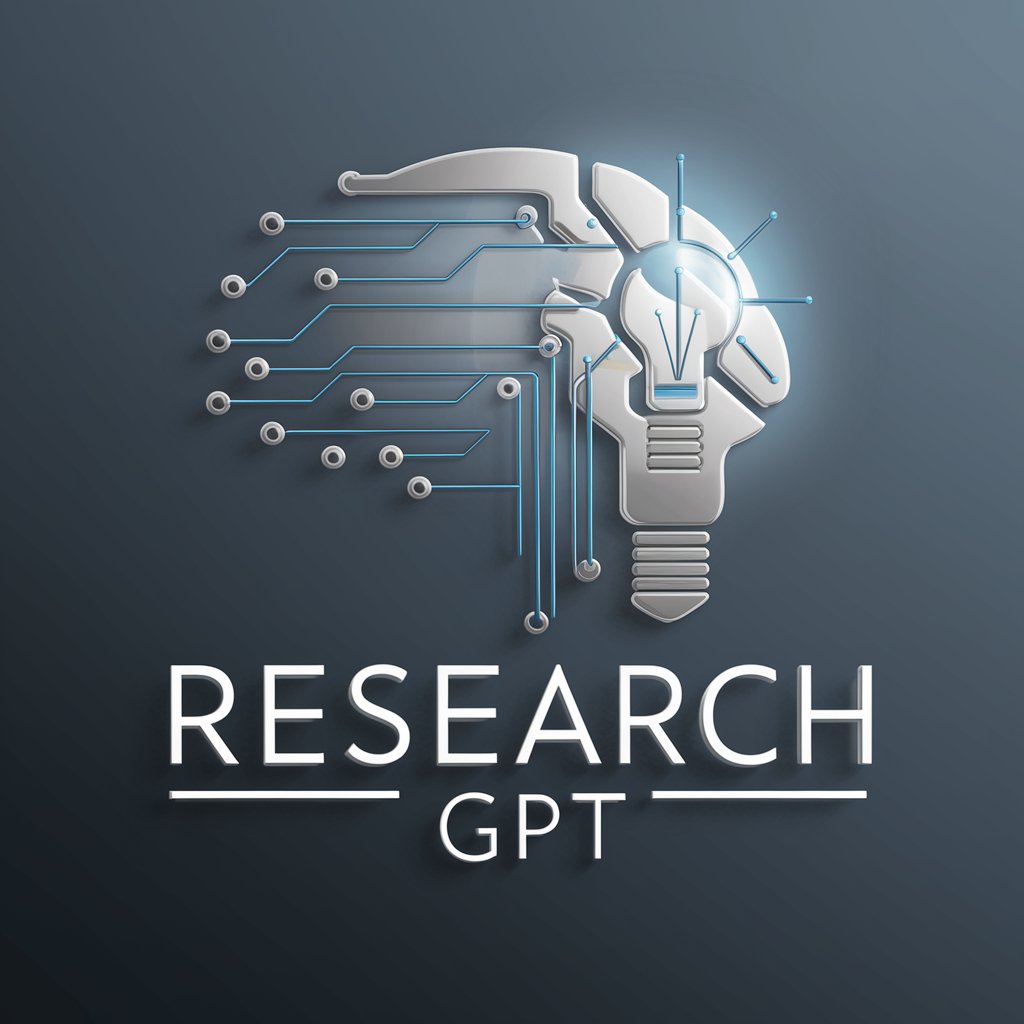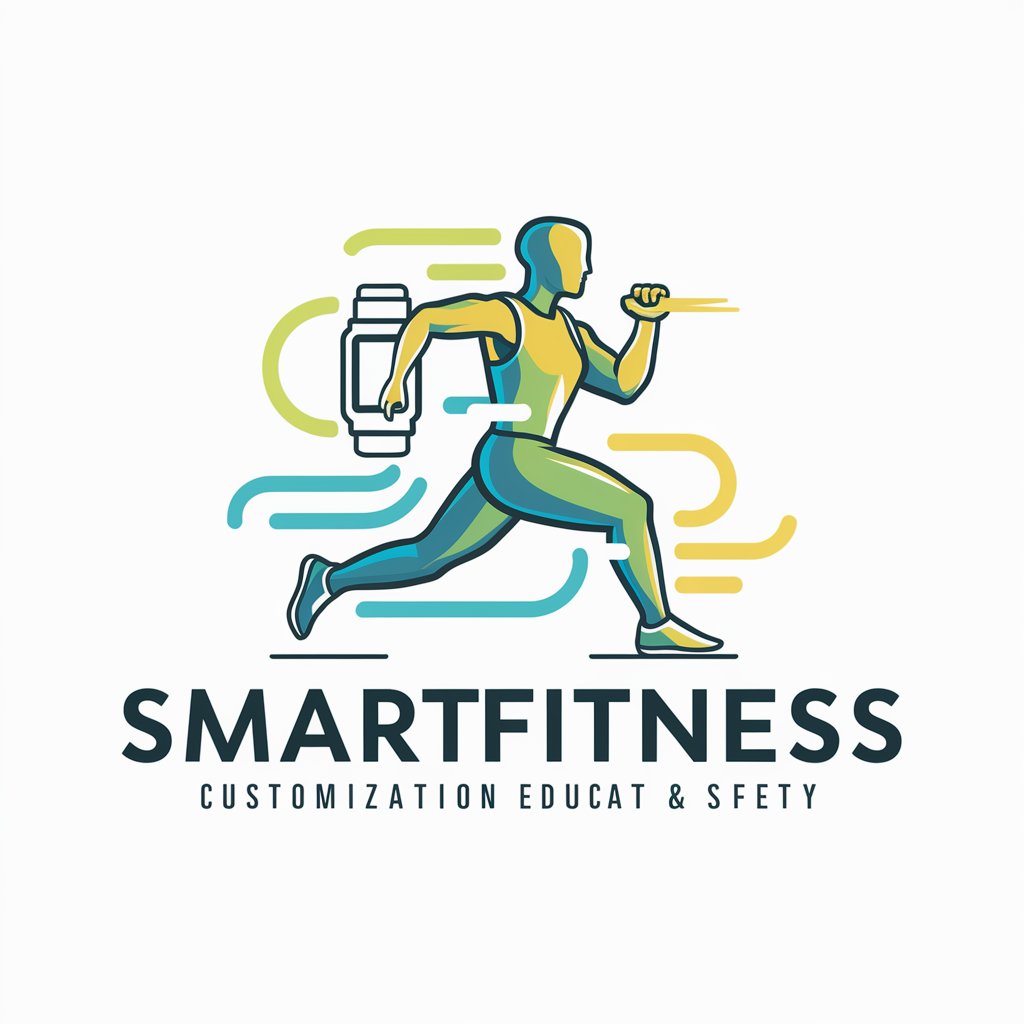Research GPT - AI-Powered Research Assistant

Welcome to Research GPT, your partner in groundbreaking discoveries.
Empowering Research with AI
Analyze the latest trends in...
Summarize the key findings of...
Develop a research plan for...
Evaluate the impact of...
Get Embed Code
Introduction to Research GPT
Research GPT is an advanced AI model designed to assist researchers, academics, and professionals in various fields by providing comprehensive, detailed, and contextually relevant information. Built upon the GPT architecture, Research GPT has been tailored to meet the specific needs of individuals engaged in academic and professional research endeavors. Unlike traditional search engines or general-purpose AI models, Research GPT is adept at understanding complex queries, generating nuanced responses, and synthesizing vast amounts of information into coherent insights. For example, researchers can leverage Research GPT to explore new ideas, conduct literature reviews, draft academic papers, analyze data, and even engage in interdisciplinary collaboration. Powered by ChatGPT-4o。

Main Functions of Research GPT
Information Retrieval
Example
A researcher needs to gather data on the impact of climate change on biodiversity.
Scenario
Research GPT retrieves relevant scientific papers, reports, and datasets related to climate change and biodiversity, providing the researcher with a comprehensive overview of the topic.
Literature Review Assistance
Example
An academic is writing a literature review for a research paper on artificial intelligence in healthcare.
Scenario
Research GPT assists the academic by summarizing key findings from relevant papers, identifying gaps in existing literature, and suggesting additional sources to explore, thereby streamlining the literature review process.
Data Analysis Support
Example
A data scientist is analyzing customer behavior data for a marketing campaign.
Scenario
Research GPT helps the data scientist by generating insights from the data, identifying trends, correlations, and patterns, and offering suggestions for optimizing the marketing strategy based on the analysis.
Content Generation
Example
A content creator is developing educational materials on renewable energy technologies.
Scenario
Research GPT assists the content creator by generating informative articles, infographics, or presentations on topics such as solar power, wind energy, and sustainable practices, enhancing the quality and depth of the educational materials.
Interdisciplinary Collaboration
Example
A team of researchers from different disciplines is working on a project related to urban sustainability.
Scenario
Research GPT facilitates interdisciplinary collaboration by providing a platform for researchers to exchange ideas, share resources, and integrate insights from diverse fields such as ecology, urban planning, economics, and social sciences.
Ideal Users of Research GPT
Researchers and Academics
Researchers and academics across various disciplines, including science, technology, engineering, mathematics (STEM), social sciences, humanities, and healthcare, benefit from Research GPT's ability to access and synthesize vast amounts of scholarly information. They can use Research GPT for literature reviews, data analysis, hypothesis generation, and academic writing, enhancing their research productivity and efficiency.
Data Scientists and Analysts
Data scientists, analysts, and professionals involved in data-driven decision-making rely on Research GPT to assist in data analysis, interpretation, and visualization. By leveraging Research GPT's capabilities, they can derive actionable insights from complex datasets, uncover hidden patterns, and make informed business decisions based on data-driven evidence.
Content Creators and Educators
Content creators, educators, and instructional designers use Research GPT to develop high-quality educational materials, informative articles, blog posts, and multimedia content. Research GPT helps them explore new topics, generate engaging content, and provide accurate information to their audience, thereby enhancing learning experiences and knowledge dissemination.
Interdisciplinary Research Teams
Interdisciplinary research teams working on complex, multifaceted problems benefit from Research GPT's ability to facilitate collaboration, knowledge sharing, and interdisciplinary synthesis. By leveraging Research GPT's capabilities, team members from different disciplines can integrate diverse perspectives, bridge knowledge gaps, and collectively address pressing societal challenges with innovative solutions.

Guidelines for Using Research GPT
Begin Your Trial
Visit yeschat.ai to start a free trial immediately without any login requirements or a subscription to ChatGPT Plus.
Define Your Objective
Clearly identify your research goals or questions to effectively utilize Research GPT’s capabilities tailored to high-profile research and complex information synthesis.
Interact and Explore
Engage with the tool by typing your queries or topics of interest. Utilize follow-up questions to dive deeper into specific areas or expand on initial insights.
Utilize Advanced Features
Experiment with different prompts and use cases to explore the advanced analytical abilities of Research GPT, such as data interpretation or scenario analysis.
Review and Adapt
Regularly review the outputs and refine your approach to improve the relevance and accuracy of the insights generated by Research GPT.
Try other advanced and practical GPTs
Business Generator from News
Unlock Business Opportunities with AI-Powered Insights

Loontik
Enhance your tasks with AI-powered efficiency

DATA
Empowering inquiry with AI precision.

Food Quality Expert
AI-powered Food Safety Insights

Jesus Christ AI
Illuminate paths with AI-powered wisdom.

Pathwork Helper
Navigate your spiritual journey with AI

NSFW AI Art Generator
Unleash AI creativity in NSFW art.

Fitness
Empower Your Fitness Journey with AI

React Copilot [FR]
Streamline your code with AI-powered assistance.
![React Copilot [FR]](https://r2.erweima.ai/i/ScwlwafoTsGAx2BT6h2V2g.png)
Merch Keyword Optimizer
Unlock Your Marketing Potential with AI Keywords.

Any Chart Maker - Line/Bar/Area/Pie/Polar/Flow
Transform your data into insightful charts with AI-powered precision.

TenX
Unlock AI-Powered Programming Assistance

Frequently Asked Questions About Research GPT
What is Research GPT?
Research GPT is a specialized version of ChatGPT, designed for high-profile research tasks. It provides detailed, reliable answers and insights, facilitating complex information synthesis and analysis.
How does Research GPT differ from other AI models?
Unlike general AI models, Research GPT is fine-tuned for depth in specific domains like academic research, offering tailored responses that are more contextually relevant and data-driven.
Can Research GPT handle data analysis?
Yes, Research GPT can assist in interpreting complex datasets, providing summaries, trends, and even predictions based on the input data, thereby enhancing research capabilities.
Is Research GPT suitable for educational purposes?
Absolutely, Research GPT serves as an excellent resource for educators and students by providing detailed explanations, facilitating learning, and assisting in the creation of educational content.
What are the limitations of Research GPT?
While Research GPT excels in handling a wide range of queries, its responses are limited by the data it was trained on and it may not handle extremely niche or unprecedented questions effectively.
